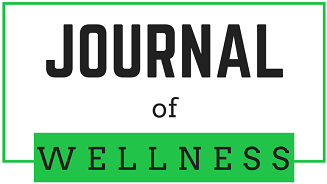
Abstract
Introduction: Burnout is common among health professions trainees characterized by emotional exhaustion induced by repeated stressors. Although traditional stress management activities to promote wellness are effective in reducing stress short-term, alternative approaches are needed with the potential for long-term impact. To address burnout among students at the University of Nebraska Medical Center (UNMC), a vocal group was formed to provide a creative outlet. The purpose of this study was to determine the students’ motivation for joining Doc’Apella and assess the impact on burnout.
Methods: Students enrolled in a health sciences program were invited to participate during the 2018-19 academic year (August-May). Two volunteer students arranged the music, recorded individual practice tracks, and directed the group during rehearsals two nights/week from 5:30-6:30. Group members selected arrangements and performed in a variety of settings. At the end of the year, participants were invited to complete an anonymous online survey.
Results: Of the 98 students on the roster, 18 (18.4%) responded to the survey. Participants included medical students (n = 9, 50.0%), three graduate students (16.7%), two public health students (11.1%), one pharmacy student (5.5%), and three classified as “other” (16.7%). Nine (50.0%) indicated the aspect of the group that was MOST important was “escaping my stress or frustration with a creative activity.” Thirteen (72.2%) felt Doc’Apella was very or extremely beneficial to their “own sense of wellbeing” and 94.4% (n = 17) reported Doc’Apella “helped reduce stress and burnout” somewhat or very much.
Conclusion: Creating music with others may provide an effective way for medical trainees to not only to express creative energy but also to connect with others across health professions. Although the results support structured creative activities to reduce stress and burnout, a large-scale study is needed will strengthen empirical evidence and highlight the impact for health professions trainees.
DOI
10.18297/jwellness/vol2/iss2/5
Recommended Citation
Carlson, Kristy J.; Newton, Laura E.; Brosnihan, Paul J.; Wengel, Steven P.; and Dowdall, Jayme R.
(2020)
"Doc’Apella: A Vocal Performance Group Designed to Reduce Stress And Prevent Burnout Among Medical and Health Sciences Students,"
Journal of Wellness: Vol. 2
:
Iss.
2
, Article 5.
DOI: https://doi.org/10.18297/jwellness/vol2/iss2/5
Available at:
https://ir.library.louisville.edu/jwellness/vol2/iss2/5
Included in
Higher Education Commons, Medical Education Commons, Mental and Social Health Commons, Music Performance Commons, Other Music Commons, Psychology Commons, Student Counseling and Personnel Services Commons
